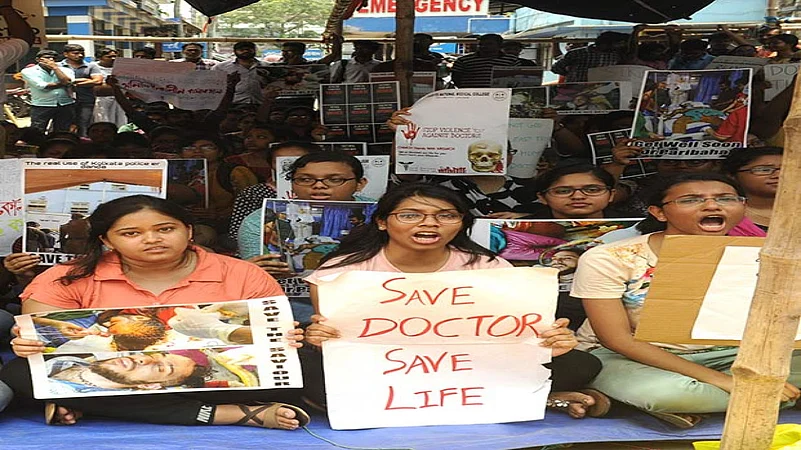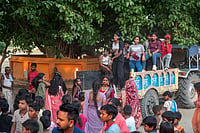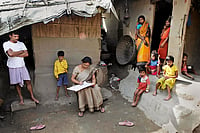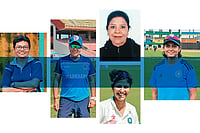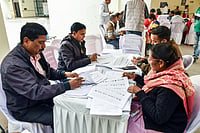On February 27, an unidentified miscreant attacked Dr Anchal Kumar, a noted orthopaedic surgeon of Jharkhand, at his residence. He sustained a head injury and was admitted to a hospital. After the attack, the Indian Medical Association (IMA) and Jharkhand State Health Service Association (JSHSA) called for a joint meeting after which government doctors and private practitioners went on a state-wide strike on March 1. There was a complete collapse of the healthcare system.
Based on media reports, it was seventh incident of attack on a medical practitioner in two weeks and such violent attacks on them are now common in Jharkhand. With every attack, the focus shifts back on the Medical Protection Bill.
According to the IMA, in the past decade, the Bill has been drafted thrice, but due to political logjam, it could not become a law. In March this year, the draft was presented in the Legislative Assembly. However, after some legislators raised objections, it was sent to the Select Committee for review.
As per the state health department, the government will definitely try to give a legal shape to the Medical Protection Bill during the monsoon session beginning on July 28. However, the doctors are not very hopeful.
Pradeep Singh, Secretary, IMA Jharkhand, says, “The Medical Protection Bill has been in practice in 23 states across India. However, the Jharkhand government does not seem to be serious about this.”
The doctors have been requesting the state authorities to provide them a conducive environment so that they can do their job and the Bill is the need of the hour. “The doctors get beaten up, they are mistreated, and their properties are destroyed. Extortion is common. Because of these issues, many doctors have moved to other states. We have been demanding that such acts of violence against doctors should stop with immediate effect.”
The Bill was first presented in 2013-2014, when the United Progressive Alliance (UPA) government was in power. It was again presented in 2017 when the Bharatiya Janata Party (BJP) came to power under the leadership of Raghubar Das, but due to political logjam, it could not be passed in the Assembly. This year in March, the Bill reached the Select Committee after being approved by the council of ministers. Even after these positive developments, the doctors are not very positive.
“For the last 12 years, the medical association has been carrying out protests demanding the Medical Protection Bill. If the government was serious, it would have cleared it long back,” says Thakur Mritunjay Singh, Secretary, Jharkhand State Health Service Association.
Four months back, a team was formed under the presidentship of the Director in Chief of Medical Department for the review of the Bill. The suggestions and the conditions of both, the government, and the department were approved by the IMA. When the Bill was presented in the Assembly, three to four legislators raised objections to the Bill even without going through it. As a result, the government sent the Bill back to the Select Committee.
“It is very strange that the committee has suggested that views of people should be taken into consideration. When the Bill has been approved by the Law Department, Personnel Department, and the Health Department, taking feedback from the public does not make any sense,” says Singh.
Singh informed that instances of violence against doctors have continued unabated. Every month, 12-15 incidents are reported. In June, Dr Bhanu Das, who works at a private hospital in Ramgarh district, received an extortion letter from the post office. However, after investigation, the number mentioned in the letter was found to be incorrect.
At Kanke in Ranchi, Dr Shambhu Prasad Singh runs a private clinic. In 2020, he was asked to pay Rs 20 lakh as a ransom. “I received a message on my WhatsApp, allegedly sent by Dinesh Gope, the head of the terrorist organisation PLFI (People’s Liberation Fund of India). He demanded a ransom of Rs 20 lakh. He threatened to kill me if I refused to pay up.” However, Gope denied sending any such message.
In October last year, a poster demanding Rs 50 lakh as ransom was pasted on the gate of the residence-hospital of Gumla-based Dr Saurabh Prasad, allegedly by the PFLI.
According to The Prevention of Damage to Public Property Act 2023, any act of violence on doctors or health workers and damage to hospital property would entail a fine of Rs 50,000 and two years of imprisonment.
Doctors and hospitals are obliged to treat patients at any cost. In case of death, the doctors must hand over the body to the families despite them not clearing the hospital bills. As far as the final settlement is concerned, the hospitals have the freedom to take action based on their rules and regulations. However, in the cases of wrongdoings, an inspection committee would be set up by the District Collector (DC) or Sub-divisional Officer (SDO) for investigation. The hospitals have to cooperate in such probes.
However, the Jharkhand Medical Association is of the view that these provisions are more in favour of the patients than the doctors.
While raising objection to the name of the Bill, Vinod Singh, the CPI (ML) legislator, says, “The Prevention of Damage to Public Property Act itself means that the Bill will only provide protection to the hospitals so that no one can question them. But who needs protection—the doctors or the big hospitals that function like corporates. Why is the Bill focusing on providing protection to only doctors? Why about patients and their relatives?”
The provisions against acts of violence are mentioned in the Indian Penal Code (IPC), however, if a doctor attacks or harms a patient or his/her family, why there are not provisions against them, he asks.
Singh had been called by the Select Committee and he has given his inputs. He has also requested the committee to take suggestions from the public, too, especially all those who are associated with the medical field.
According to a state report, 3,691 posts of doctors have been approved in the state. Out of these, 2,028 posts are lying vacant. First, there are very few doctors and then they are being attacked. Ultimately, it is the people who have to bear the brunt. It is pertinent that the Bill is passed in the monsoon session, say experts.
“The government is keen on this, however, it would be premature to comment. The ruling party and the Opposition, both have to give to go-ahead. In case the Bill gets stuck again, the government should not be held responsible. In a democratic set up, things cannot be forced on others,” says the state health minister, Banna Gupta.
The Bill was brought to the House after getting an approval from the Council of Ministers. It was also sent to the Select Committee. “All those ministers who had raised objection to the Bill are being called by the committee and their queries are being addressed. Their suggestions are being sought. The government is keen to get the Bill passed,” he adds.
The story was translated from Hindi to English by Kaveri Mishra







